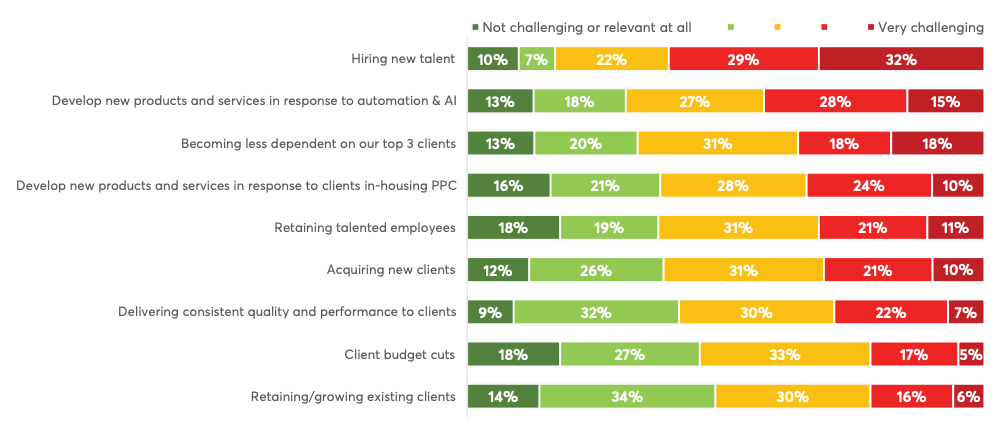Traditional Ad Gains, Smaller Agency Travails, Roe Brand Nightmare

Second Look at Traditional Media
Traditional ads have been in decline for 20 years. However that may be changing somewhat, as a collection of digital challenges prompt a second look at "offline media." Those include the end of third party cookies (and online privacy in general), rising prices, ad clutter, consumer distrust and increasing fraud. An article in the Harvard Business Review sums up the present moment: "Research by Ebiquity suggests that traditional media channels — led by TV, radio, and print — outperform digital channels in terms of reach, attention, and engagement relative to costs." In other words, traditional ads may now be a relative bargain. A separate piece of research from Onscreen.ai carries a similar message. The survey of 600 US marketers found a majority (67%) said "digital returns" were diminishing; 61% blamed intensifying competition, while 60% pointed to "growing consumer digital fatigue and distrust of digital ads."

Our take:
- Traditional media channels have remained more trusted than digital for years. Other than reviews, search is the most trusted digital channel.
- Many DTC brands opened stores in response to the high cost of online customer acquisition. This is somewhat counter-intuitive.
- The answer here isn't either/or; it's a judicious mix of both digital and traditional channels. Both can work together and reinforce one another.
Agencies: Hiring, Proving Value Tougher
Hiring talent is more challenging for agencies than acquiring clients, according to the recent State of PPC Global Report (pdf), an international survey of roughly 500 brands, advertisers and agencies. A majority of the 280+ agency respondents were boutiques (<25); 43% had more than 25 people and/or were part of global holding companies. The report explores multiple topics, including adoption of Google Ads automation: 97% are using RSAs, 95% Smart bidding by CPA, 51% are using Local Campaigns. The biggest agency challenge was "hiring new talent" (61%), followed by "develop new products and services in response to automation & AI" (43%) and "becoming less dependent on top 3 clients" (36%). In terms of demonstrating value, 39% said it was now more difficult, 36% disagreed, 25% were neutral. For the 39%: 1) "client expectations keep rising," 2) proving value "on top of platform automation" is hard.

Our take:
- A higher percentage of North American agencies found proving value tough because of increased client expectations (54% vs. 26% globally).
- Other proof-of-value challenges: attribution, clients "thinking it’s easy" and difficulty of "showing double-digit improvements over time."
- In Near Memo ep. 62 we discussed Google's Performance Max and the automation threat to (some) agencies. This study seems to validate that.
Abortion = Insoluble Brand Nightmare
Just when you thought brand management couldn't get more complex, along comes the SCOTUS anti-abortion decision leak. Most brands have historically tried to be apolitical to preserve maximum appeal. But since 2016 there has been pressure to take explicit stands on social issues. Most recently this showed up in response to the Russian invasion of Ukraine. Some companies pulled out only after public shaming/external pressure. Crisis communication firm Zeno Group (Edelman) recently counseled clients to remain silent on abortion rights. Zeno called abortion a "no-win situation" because of polarization (though majorities support Roe). A small number of companies have quietly said they will pay abortion related travel costs, as it becomes illegal in red states. They may position it simply as an extension of health coverage, not as a political statement – though it unavoidably will be one.

Our take:
- Senator Rubio introduced legislation to prevent corporate tax deductions for abortion travel. And Republicans are eyeing a nationwide abortion ban, promising to further inflame the issue.
- More state governments may try to punish companies taking positions they don't agree with. Disney was initially silent on "don't say gay" until employees complained; when Disney spoke out, it got punished.
- Younger consumers/workers are 65% pro-choice. Closely connected are: women's rights, gay rights, privacy. Companies that remain silent take a big reputational risk; those that speak out become targets too.
Recent Analysis
- Near Memo episode 63: Earth Day promos can damage reputation, CX is more than a number, SMBs need an integrated digital approach.
- The Hidden Side of CX: Mining Unstructured Data, by Adam Dorfman
Short Takes
- Protect GBP business hours from unwanted Google edits.
- GBP: ghost kitchens can now become SABs under new guidelines.
- "Business doesn't exist" now on Google business redressal form.
- Amazon takes legal action against four fake review vendors.
- Are short videos taking over from web stories on Google?
- Responding to user dissatisfaction, LinkedIn making content changes.
- The Trade Desk EVP Matt Goldberg takes over at Tripadvisor.
- Musk says Twitter blue subscriptions will double revenue by 2025.
- UK tech regulator taking steps to open platforms up.
- CA seeks to regulate blockchain tech – in a good way.
- Facebook to kill several location features in the app as of May 31.
- A look inside Meta/Facebook's first AR/VR store.
- Apple loses important AI executive because of return to office policy.
- Where Americans moved in 2021 according to moving company data.
- Most workers say they don't suffer "Zoom fatigue."
- Top reason for shopping cart bails: "unexpected shipping costs."
Listen to our latest podcast.

How can we make this better? Email us with suggestions and recommendations.

